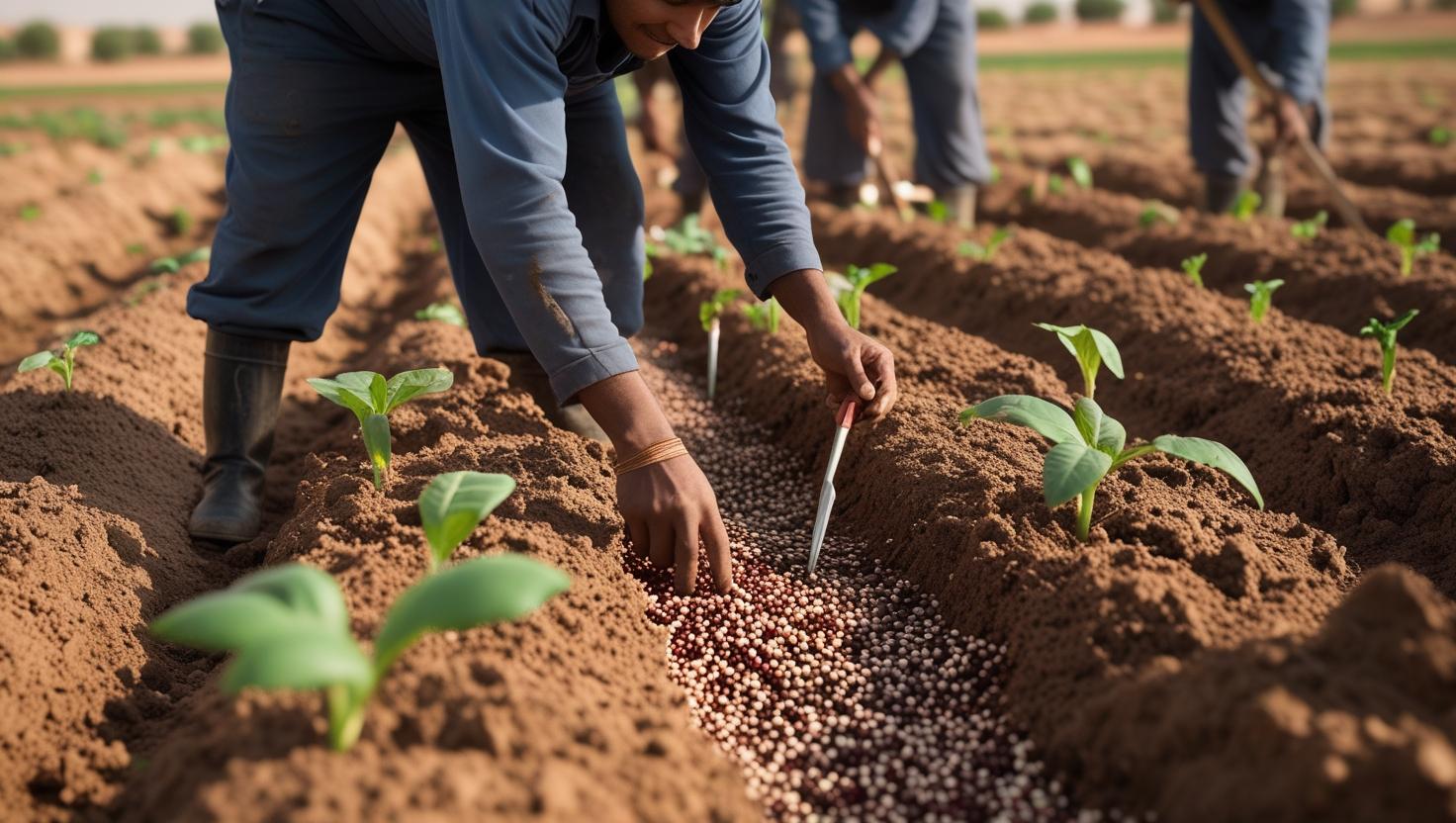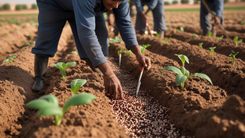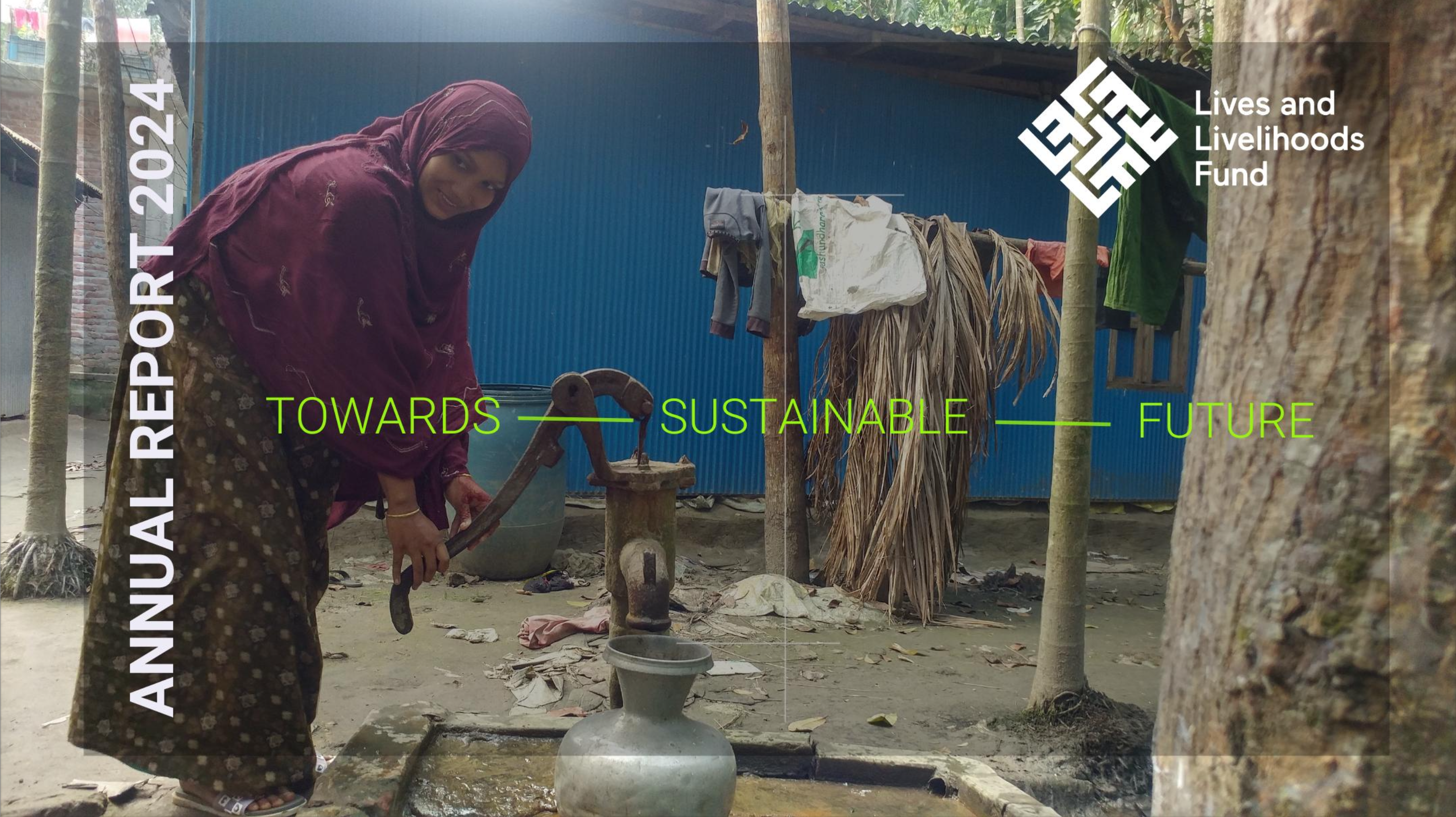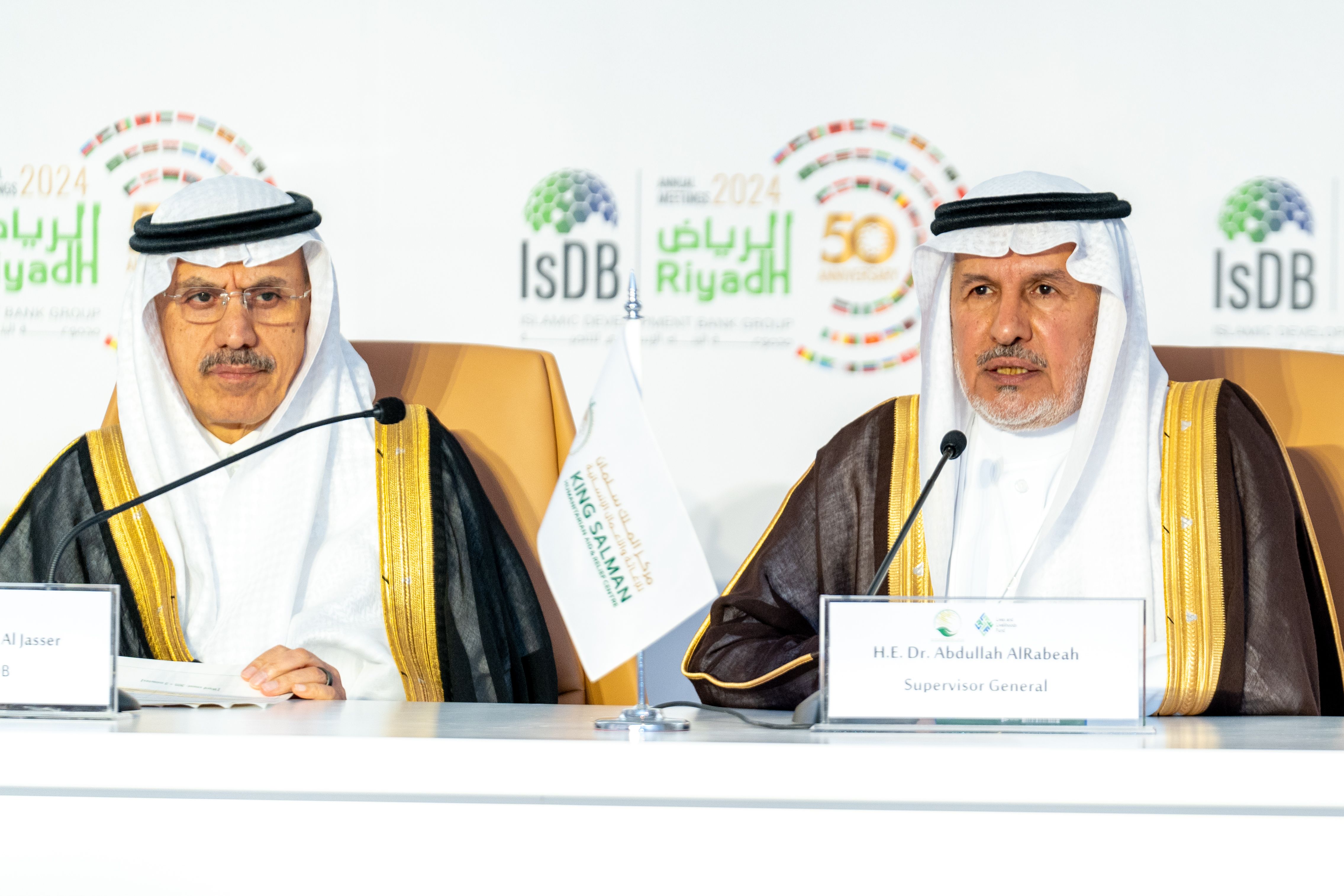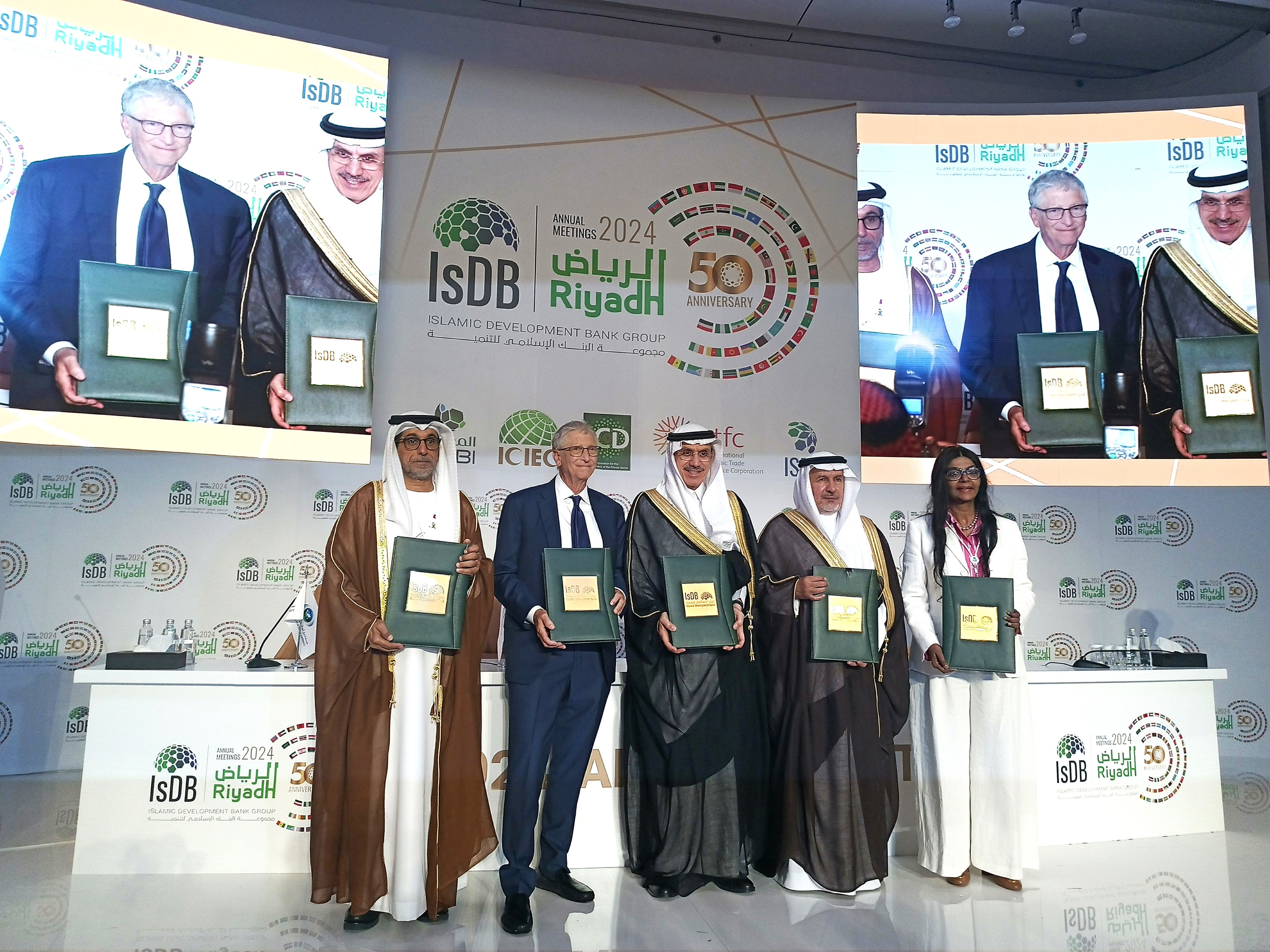Latest updates
Islamic Development Bank (IsDB) and Lives and Livelihoods Fund Partners Lead Discussions on Gender-Inclusive Financing and Social Infrastructure at 69th UN Commission on the Status of Women
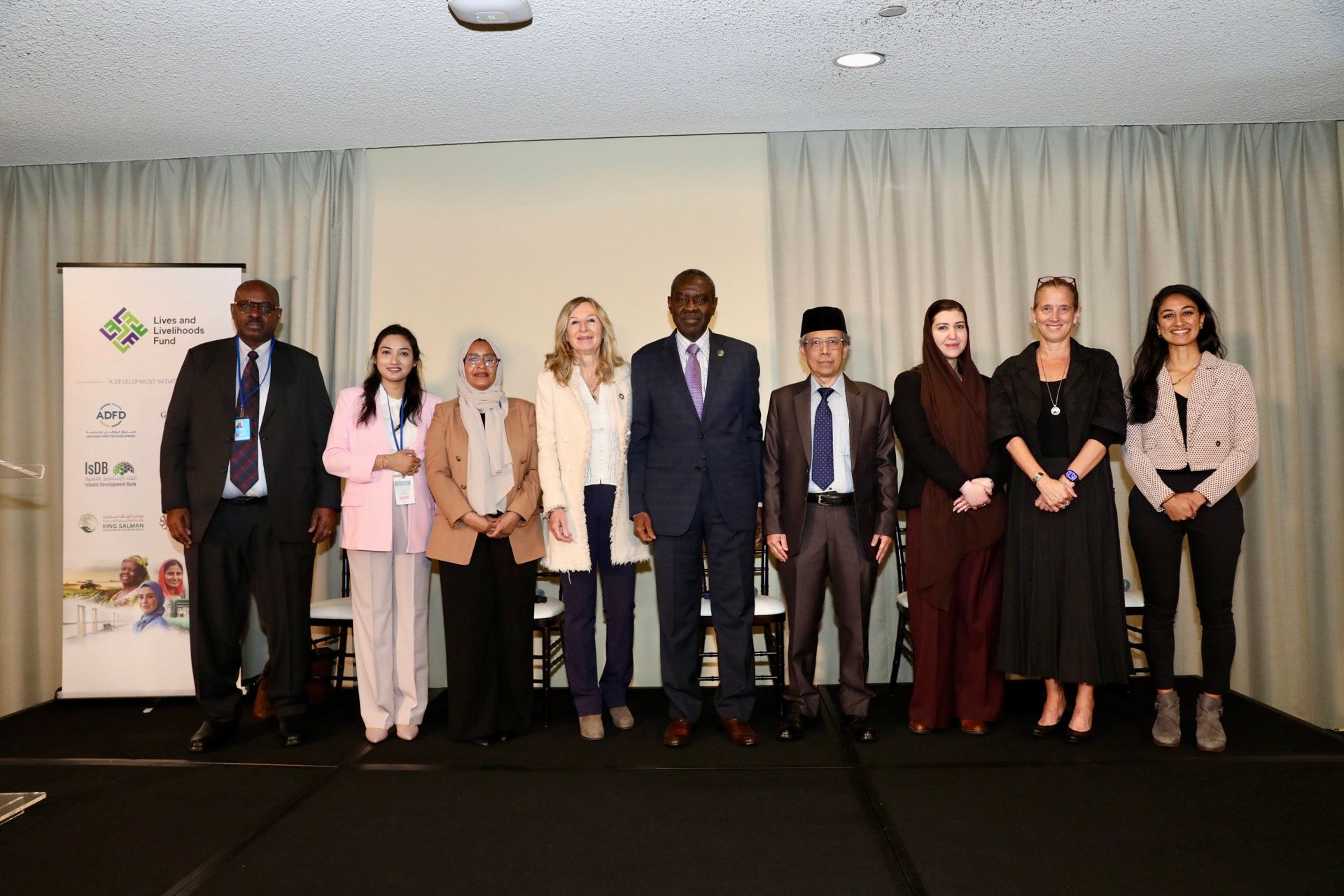
New York, United States, 14 March 2025 – A high-level panel talk, hosted by the IsDB-administered Lives and Livelihoods Fund (LLF) on the margins of the 69th annual session of the UN Commission on the Status of Women Annual, has concluded in a call for more gender-inclusive financing and social infrastructure to catalyze gender equity and women empowerment.
Themed “Leveraging Innovative Financing and Gender-Sensitive Social Infrastructure to Accelerate Women Empowerment”, the side event featured two thought-provoking sessions delving into key issues impacting women in the IsDB-member countries.
The event was inaugurated by the H.E. Mr. Hameed Ajibaiye Opeloyeru, OIC Ambassador to the UN, who noted the funding gaps in the implementation of SDGs in his opening remarks.
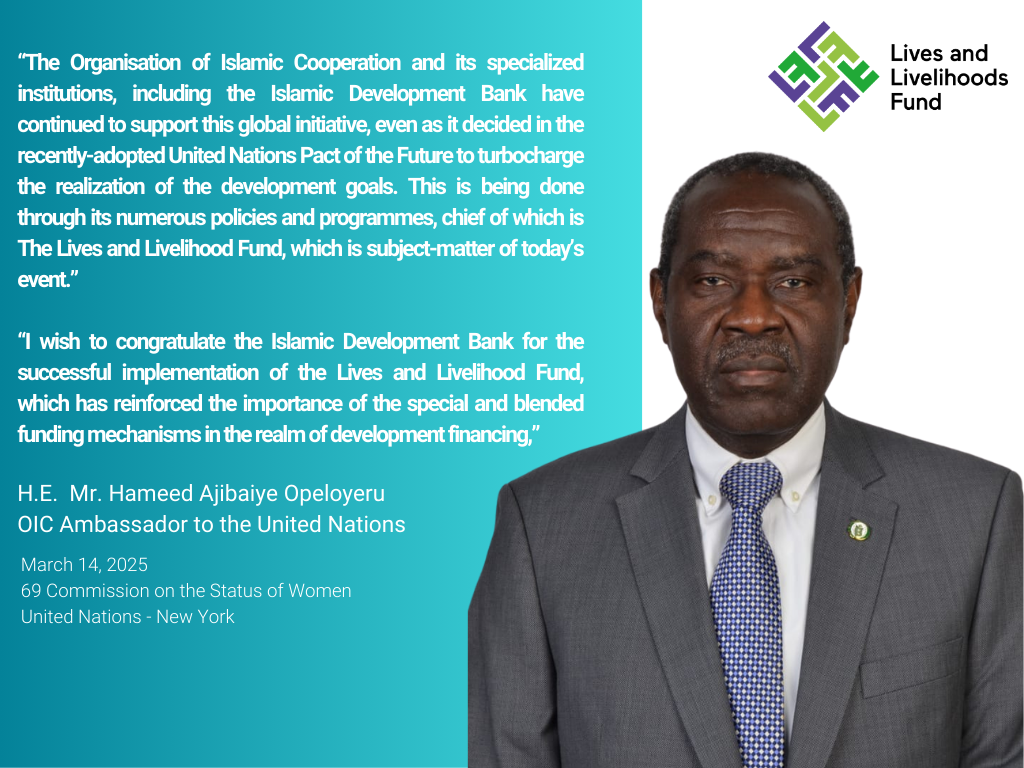
The distinguished panel line-up included speakers from the Governments of Uganda, Bangladesh and Indonesia, in addition to representation from LLF donors such as Gates Foundation, IsDB, and King Salman Humanitarian Aid and Relief Center (KSrelief).
During the first panel discussion on ‘Leveraging Innovative Financing to Empower Women,’ the panelists, drawing from their experience of partnering with LLF since 2016, and underscored the importance of blended finance approach that leverages grants and concessional loans to mobilize commercial resources toward mainstreaming women in local economies.
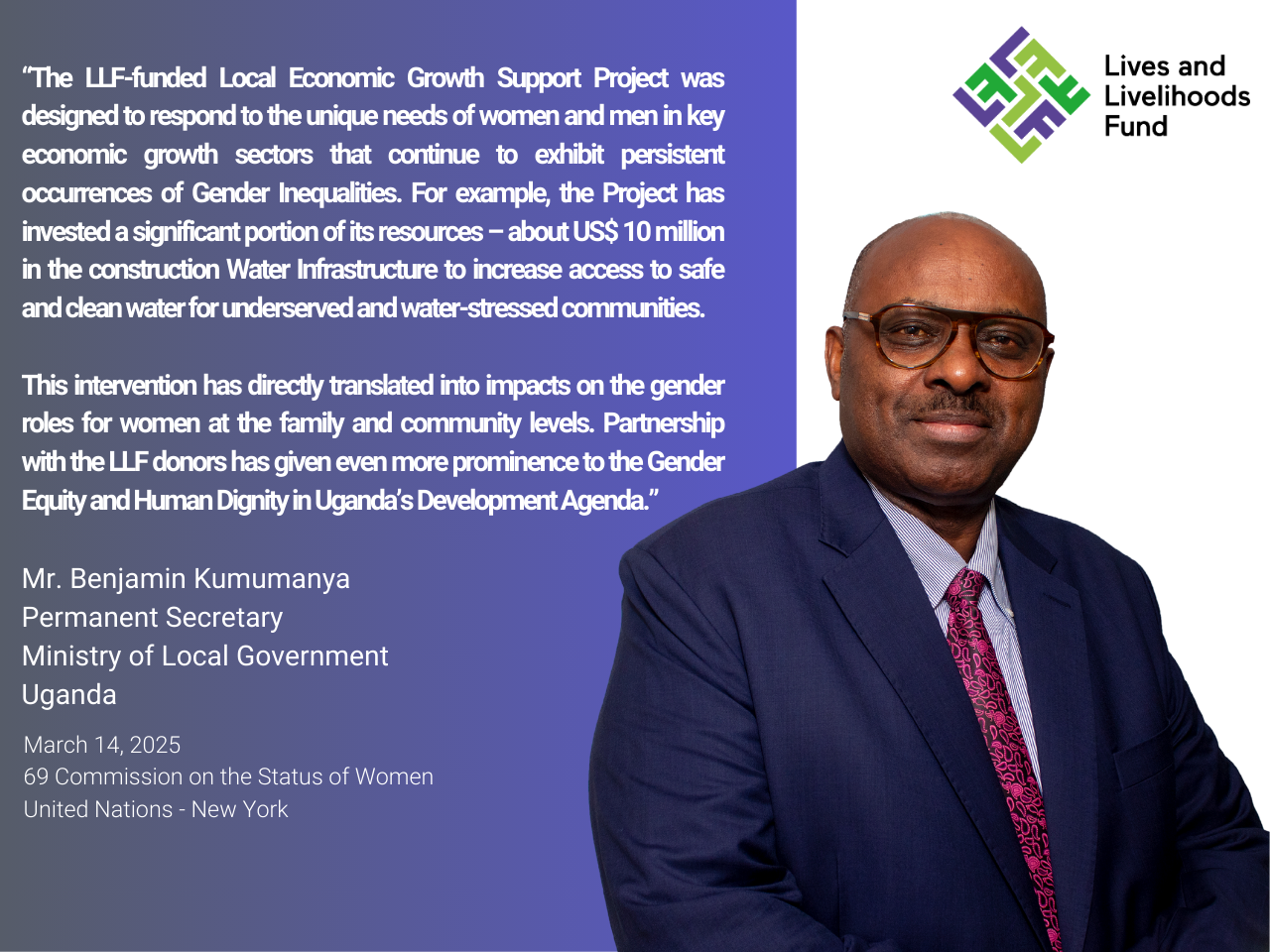
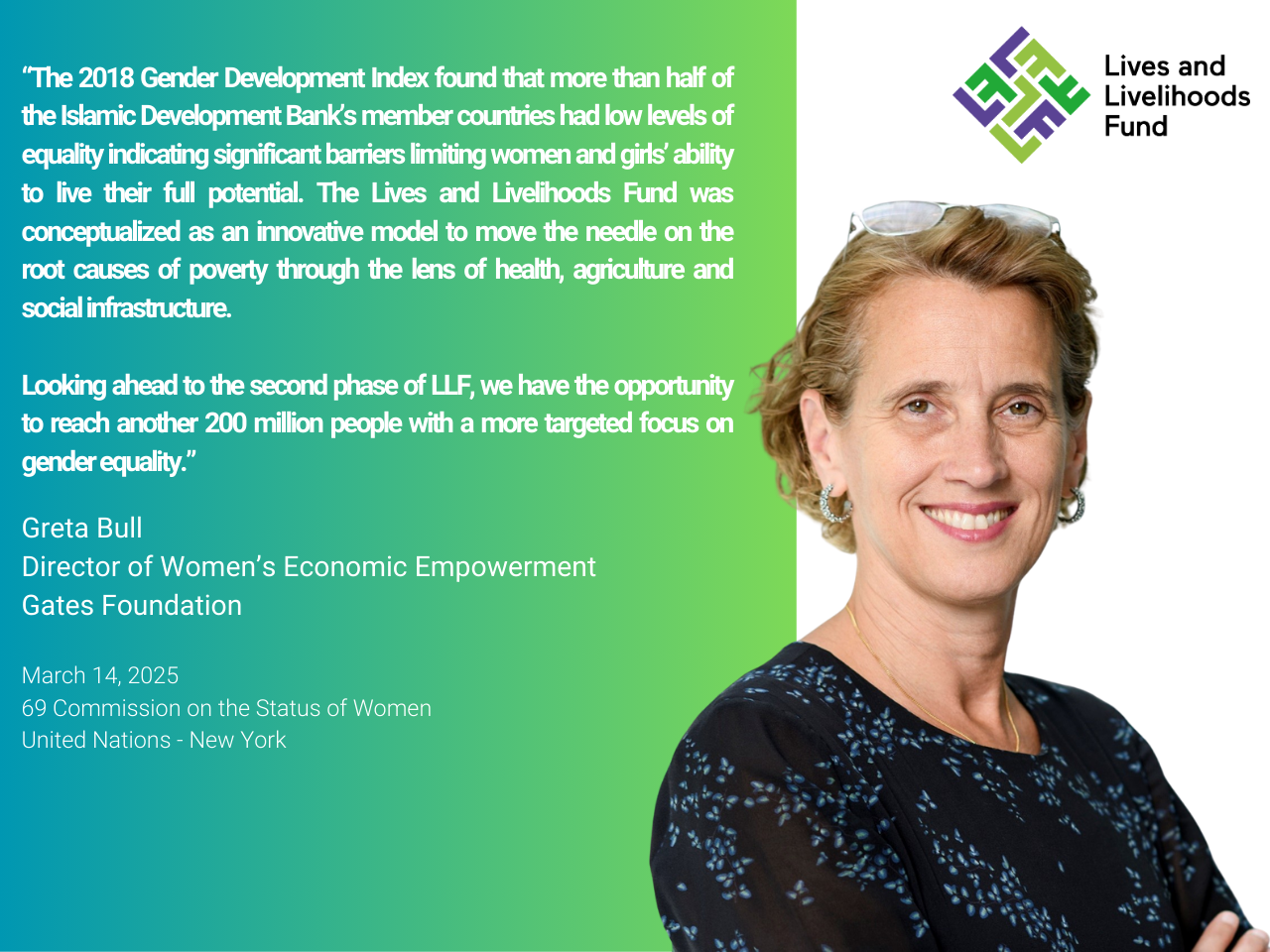
The speakers, including Benjamin Kumumanya, Permanent Secretary, Ministry of Local Government, Uganda; Greta Bull, Director of Women’s Economic Empowerment, Gates Foundation; Syed Husain Qadri, Director of Resilience and Climate Adaptation, IsDB; and Lama Ghazzawi, Senior International Communications Specialist, KSrelief, spotlighted LLF’s financial model and their partnership with the Fund to achieve impact at scale for women and girls.
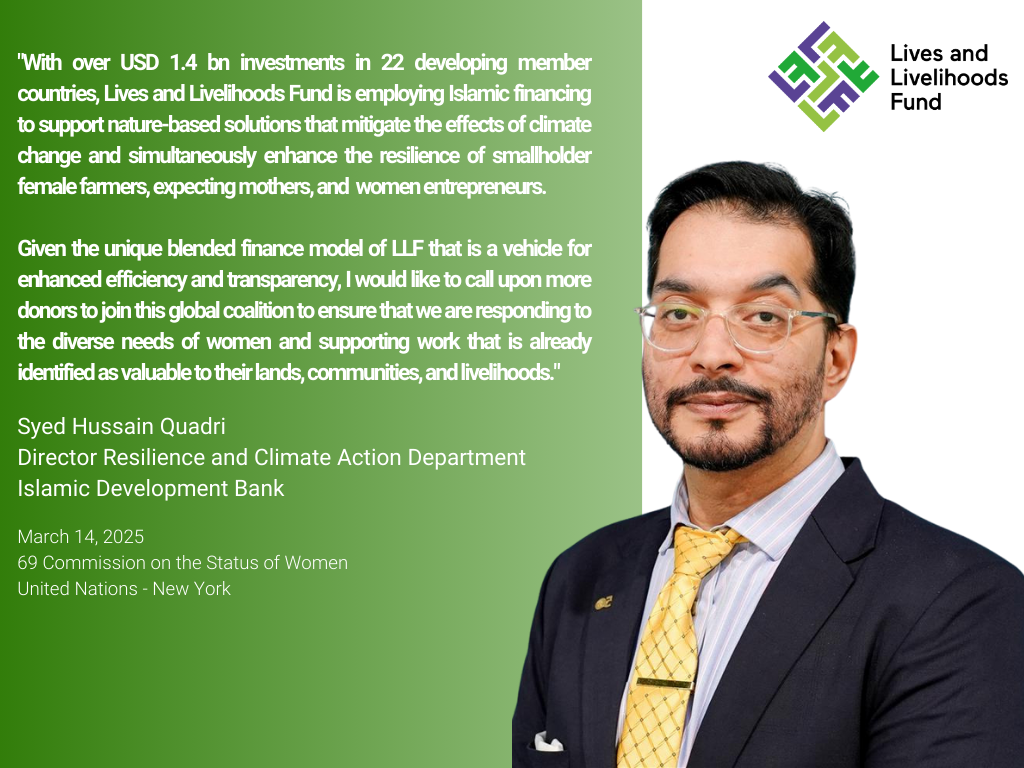
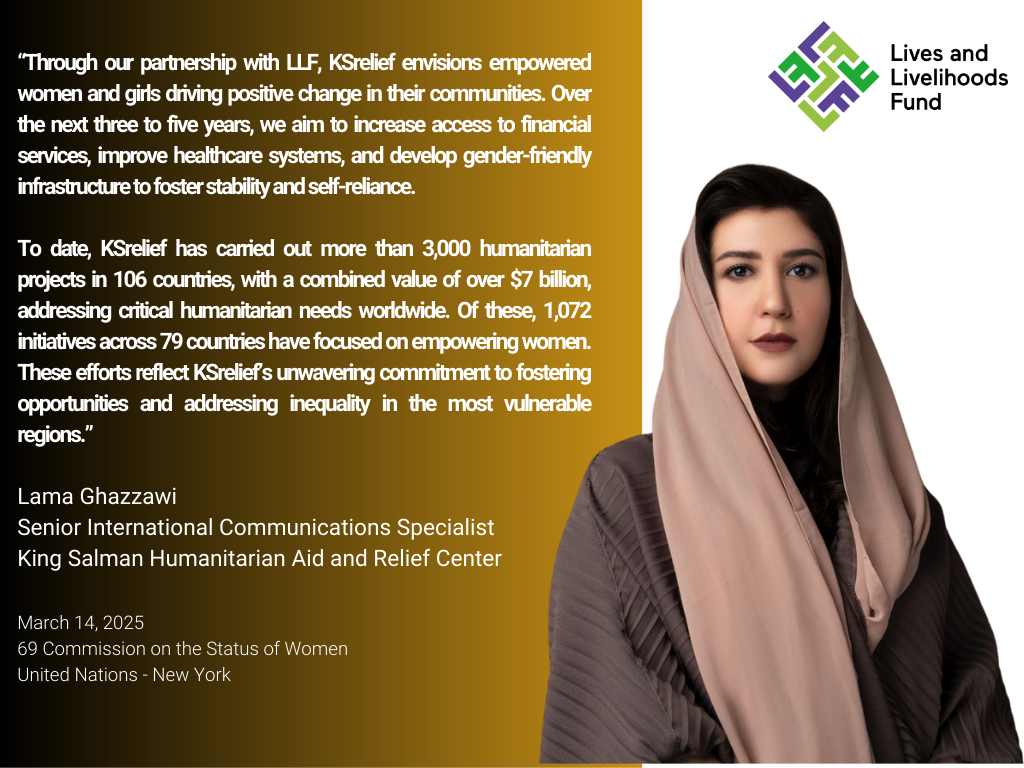
The second panel discussion, titled, ‘Gender-Sensitive Social Infrastructure to Accelerate Women’s Empowerment’ focused on strategic initiatives aligned with the increasingly diverse infrastructural needs of women and girls in the global south.
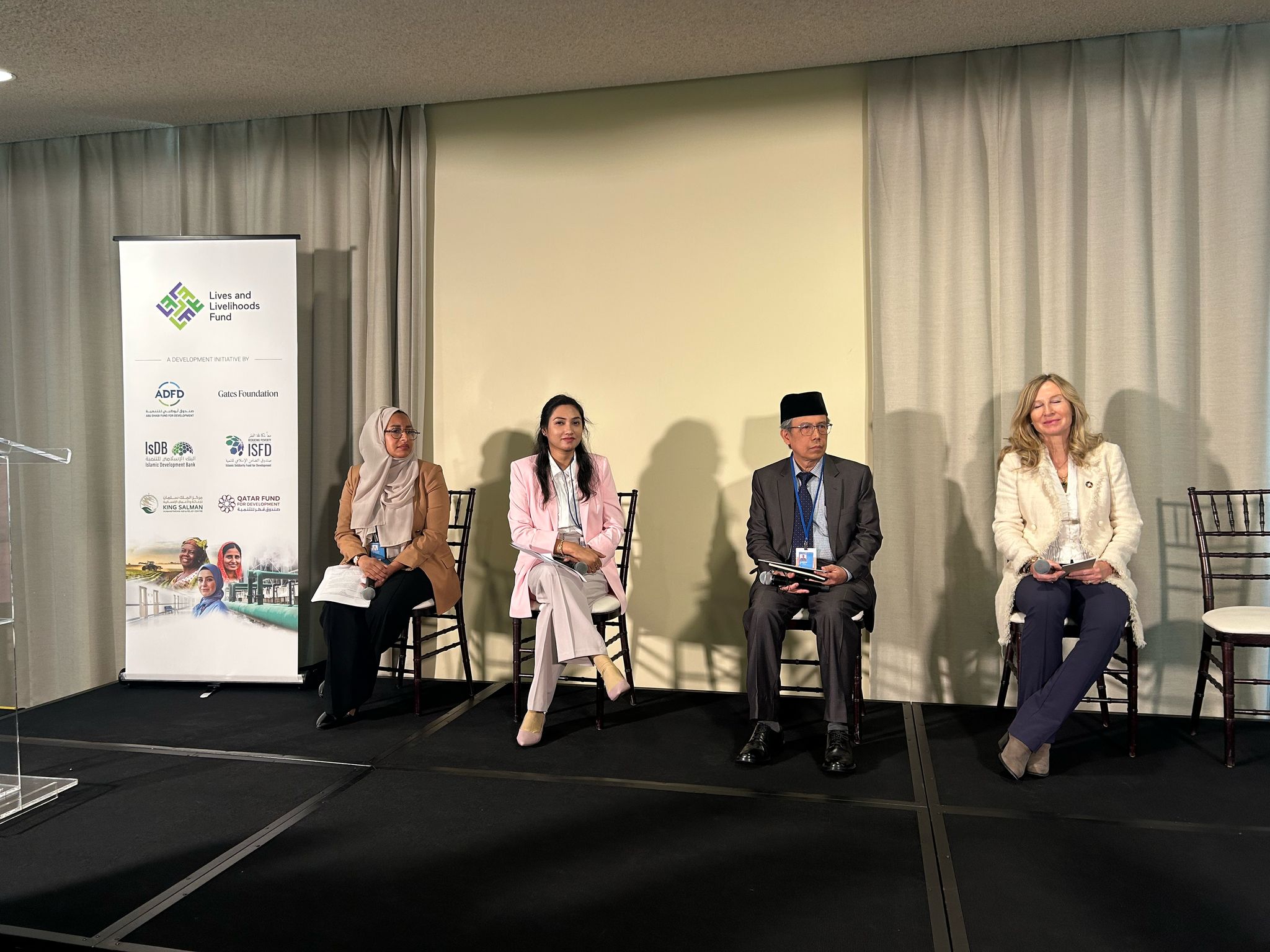
The session panelists, including Dr. Prakash Kanti Chowdhury, Joint Secretary of the Ministry of Women and Children Affairs, Bangladesh; Mr. Amich Alhumami, Deputy for Human and Cultural Development, Government of Indonesia; and Sue Stevenson, Director Strategic Partnerships & International Development, Barefoot College International underlined the critical role of inclusive social infrastructure in addressing persistent challenges outlined in the Beijing Declaration and Platform for Action and accelerating progress toward achieving the 2030 Agenda for Sustainable Development.
The panelists emphasized LLF’s project designs that integrate gender-sensitive approaches into infrastructure planning and implementation. The discussion also iterated how investments in transport, WASH (water, sanitation, and hygiene), energy, and digital access can empower women, reduce inequality, and drive sustainable economic and social development.
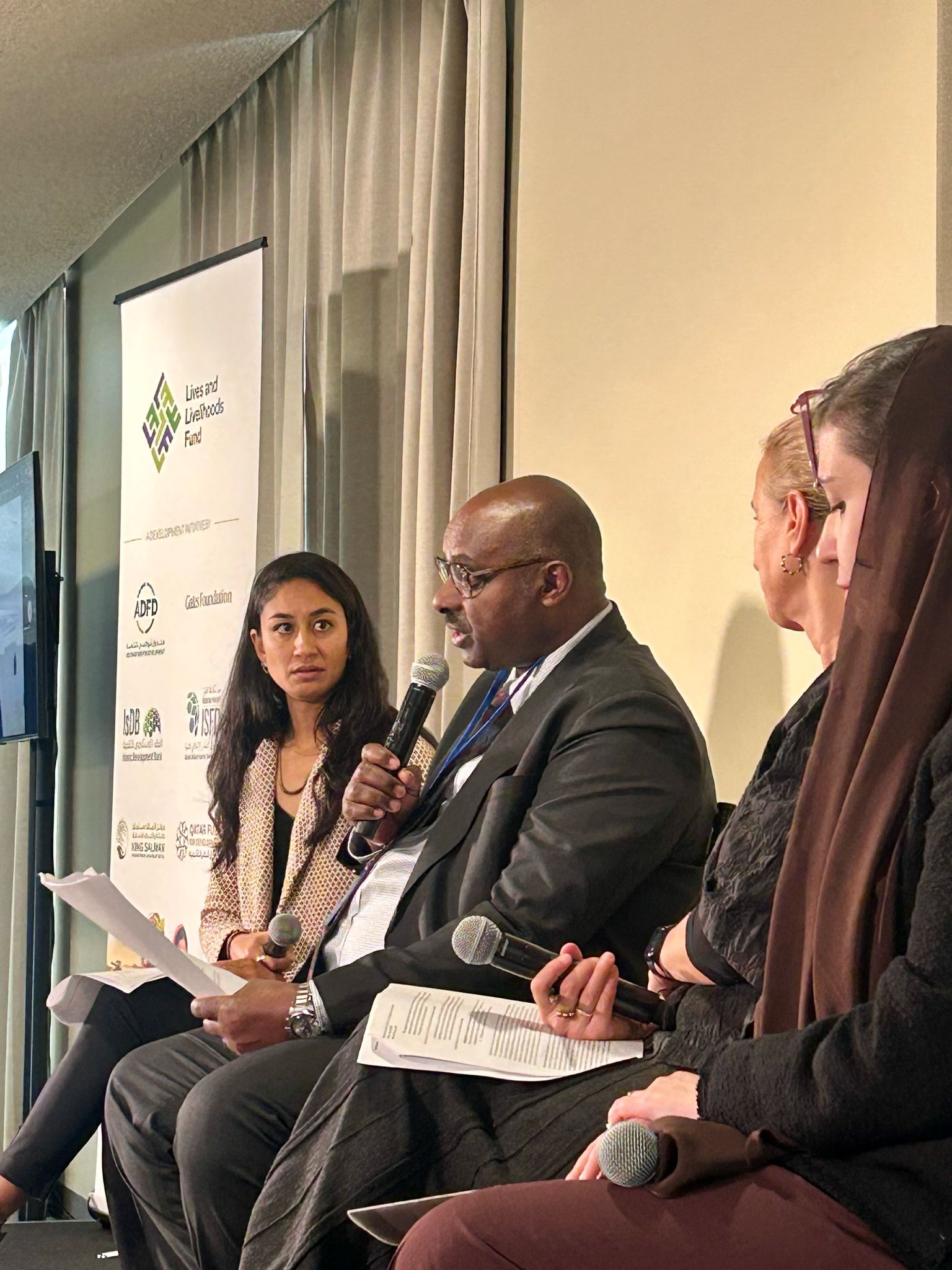
In summary, the participation of IsDB and LLF partners in CSW69 underscored their commitment to step up action and collaboration to advance women’s empowerment in 33 member countries.
The Lives and Livelihoods Fund continues to pave the way towards inclusive and equitable societies for women by fostering partnership, and implementing concrete and robust initiatives in Sub Sahara Africa, Asia and the Middle East regions. On the program front, LLF is bringing life-changing benefits to millions of women across the health, agriculture, and basic infrastructure sectors:
In healthcare, 21.6 million women have gained access to essential health services, improving maternal care, disease prevention, and overall well-being. These interventions have significantly strengthened healthcare systems, ensuring women receive the medical attention they need.
In agriculture, 243,000 women have benefited from initiatives aimed at boosting food production, enhancing farming techniques, and fostering economic independence. With better access to resources and financial support, these women have been empowered to play a crucial role in agricultural development.
Meanwhile, in basic infrastructure, 3.75 million women have seen improvements in their daily lives through better roads, access to clean water and improved sanitation, and enhanced community facilities. These developments have not only improved living standards but also expanded opportunities for women in underserved areas.
Related articles
Latest updates
Delegation from Islamic Development Bank and King Salman Humanitarian Aid & Relief Centre Visits Khatlon Region of Tajikistan
05, December 2024
Cookies
By browsing our website you accept our Terms and Conditions
